LaTeX templates and examples — Books
LaTeX book templates to write your next best seller—whether you’re writing fiction or non-fiction, a short story or long textbook.
Recent
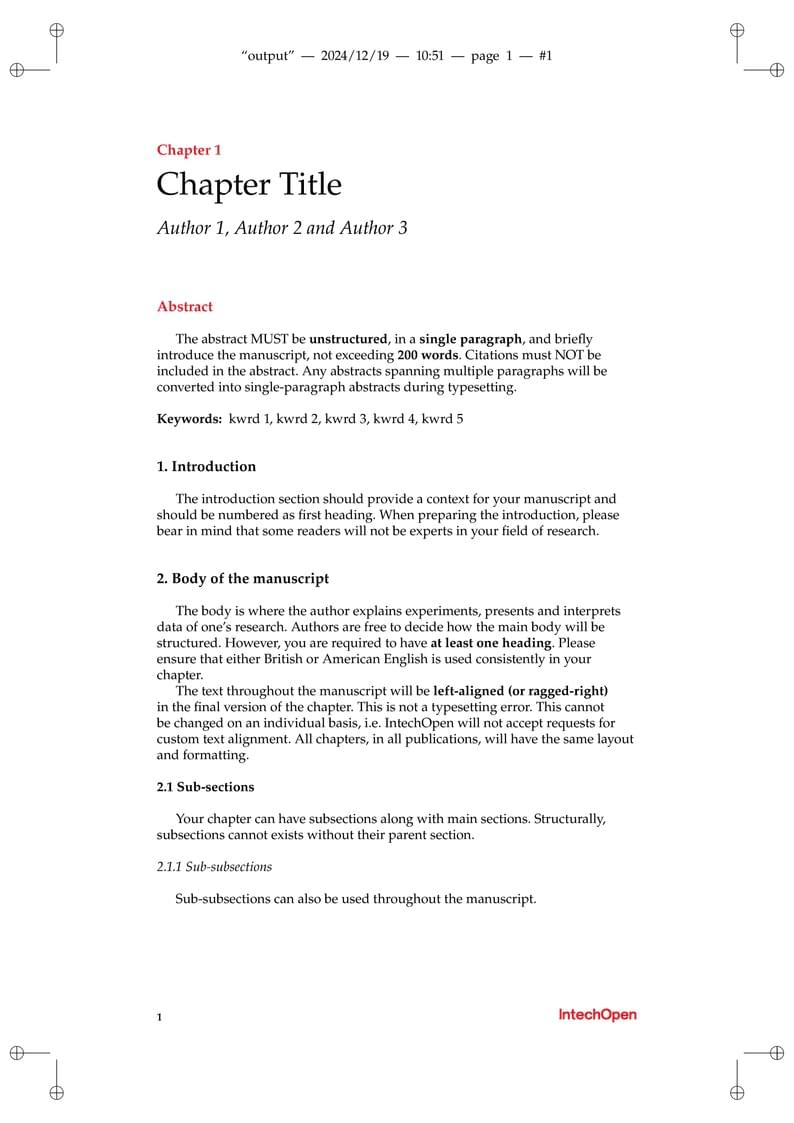
IntechOpen Authoring Template. An author template to ensure all authors use this template to produce LaTeX manuscripts that conform to IntechOpen formatting requirement. This document is a manual for the authors to help prepare their manuscript. The document has general guidelines and it describes how various elements should be coded. Official templates of IntechOpen publisher. Author Guidelines https://cdn.intechopen.com/public/docs/guidelines/IntechOpen-Author_Guidelines_New.pdf Template Guidelines https://cdn.intechopen.com/public/docs/IntechOpen-Template_Guidelines.docx
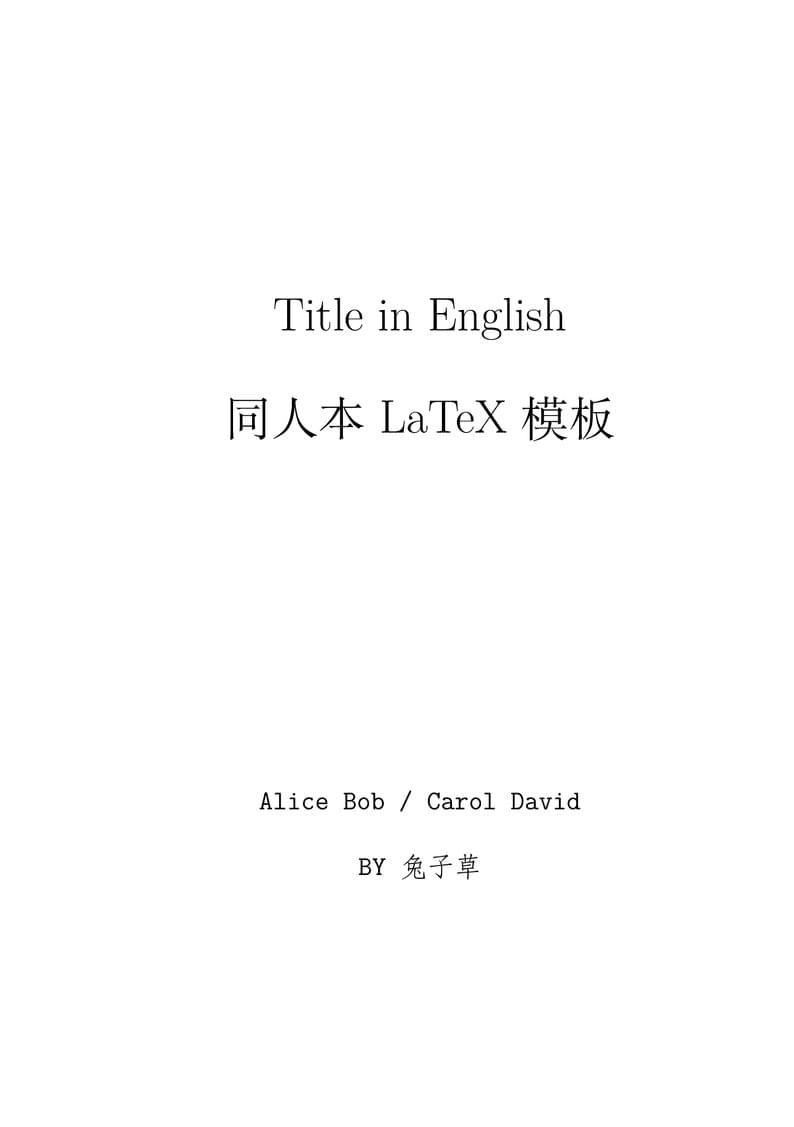
一个A5小说模板,适用于同人文打印
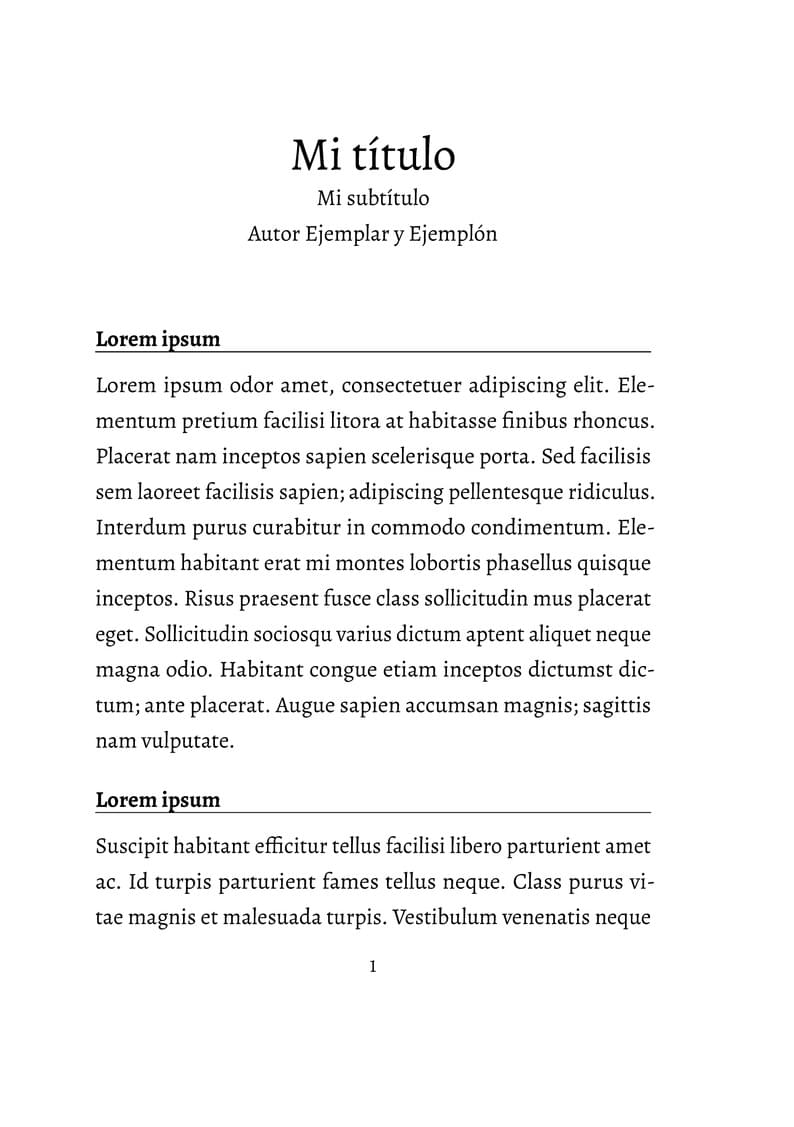
A short fiction template, meant for amateur writing. Set for Spanish but easily adaptable. Produces DIN A5 pages (half sheets and used in book printing). This can also be set to other page sizes, see comments on the preamble and main files
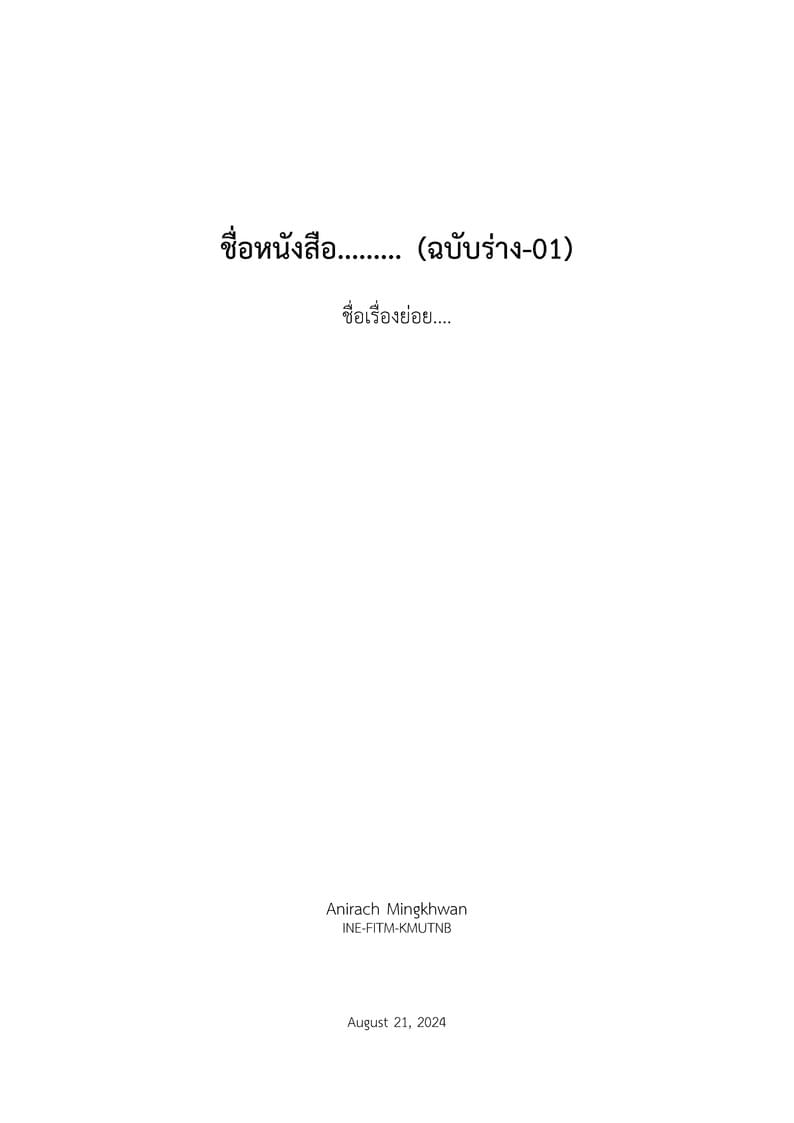
Thai Book Template for LaTeX This professionally designed LaTeX template is tailored for creating books in Thai. It includes full support for Thai text processing, customizable fonts, and a clean, modern layout. The template features easy-to-configure sections for the cover page, table of contents, main chapters, bibliography, glossary, and index, all localized in Thai. Ideal for academic, technical, and literary works, this template ensures your book looks polished and professional. Key Features: Full Thai language support with line breaking and font customization Automatically generated table of contents, bibliography, glossary, and index Customizable headers and footers with fancyhdr Clean and organized code with detailed comments for easy customization Suitable for authors, researchers, and educators looking to create high-quality, print-ready books in Thai.
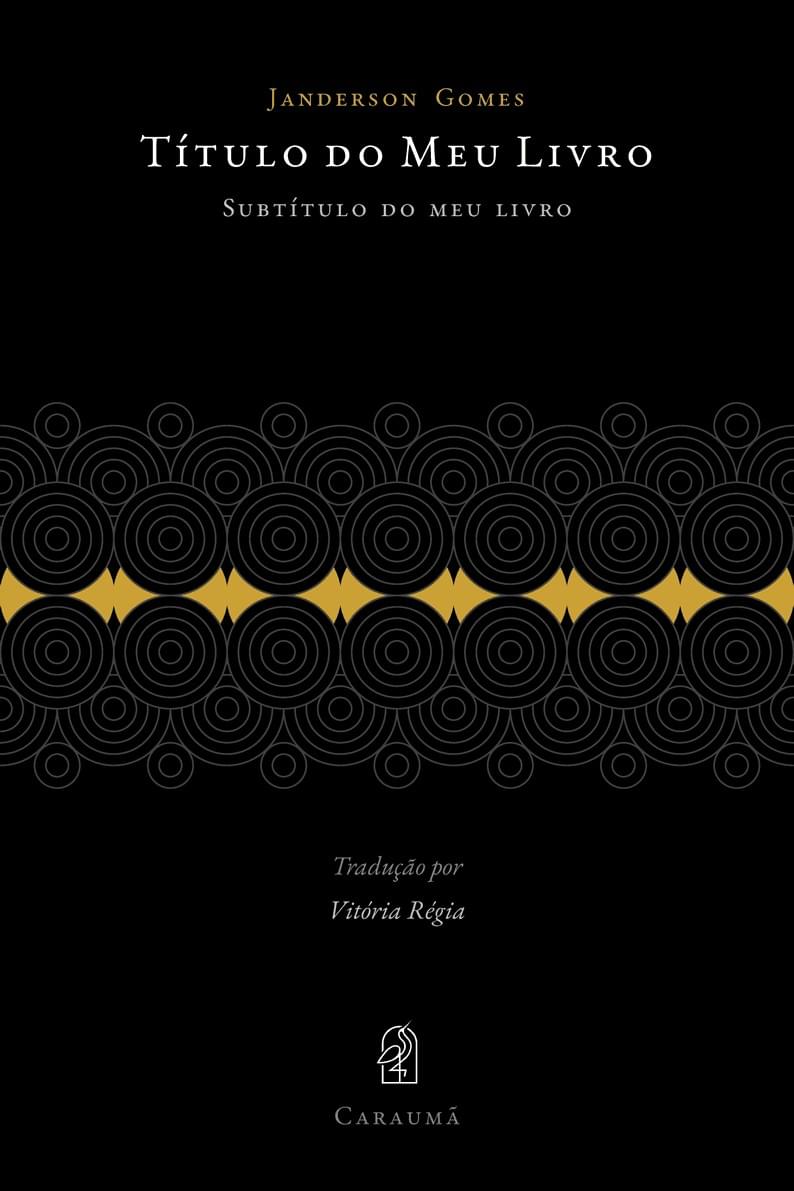
Modelo de e-Book em LaTeX (Carauman) "Carauman" é um modelo de e-book em LaTeX projetado para proporcionar uma experiência de leitura elegante e refinada. Ele inclui uma estrutura modular que permite a personalização de capítulos, seções introdutórias, e elementos auxiliares como bibliografia e glossário. Com uma tipografia cuidadosamente selecionada e uma estética visual harmoniosa, este modelo é ideal para autores que desejam publicar suas obras de maneira profissional e esteticamente agradável. Latex e-Book Template (Carauman) "Carauman" is a LaTeX e-book template designed to provide an elegant and refined reading experience. It includes a modular structure that allows customization of chapters, introductory sections, and auxiliary elements such as bibliography and glossary. With carefully selected typography and a harmonious visual aesthetic, this template is ideal for authors who want to publish their works in a professional and aesthetically pleasing way.
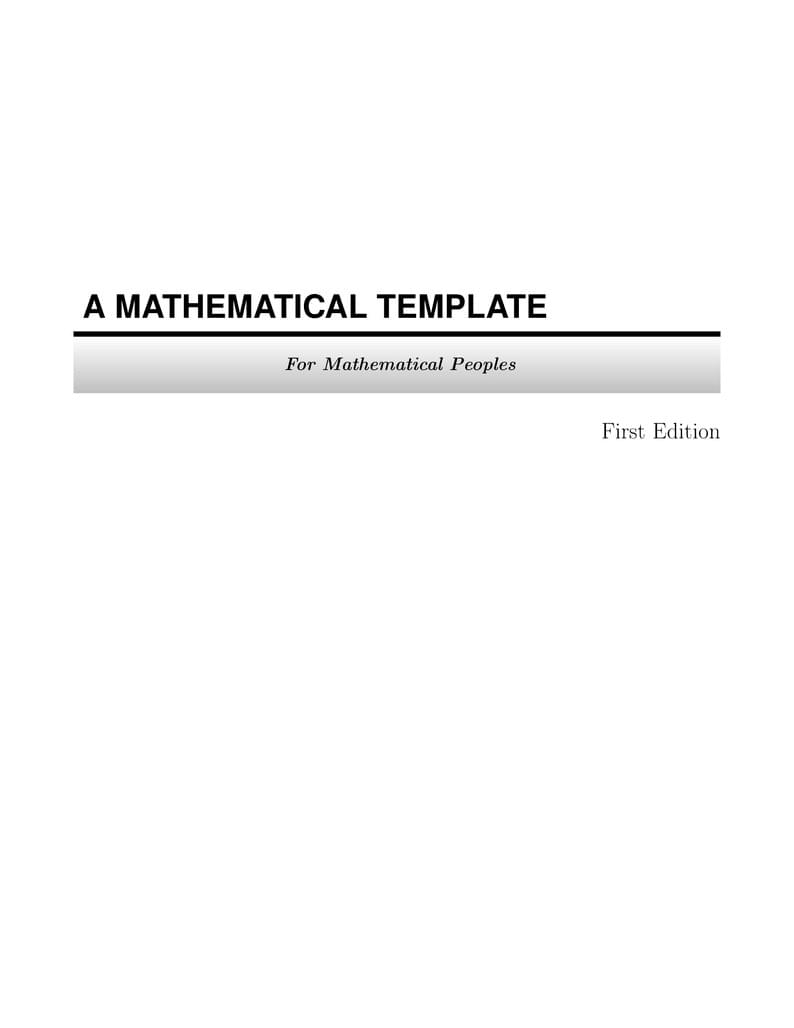
Just colorised math textbook template.
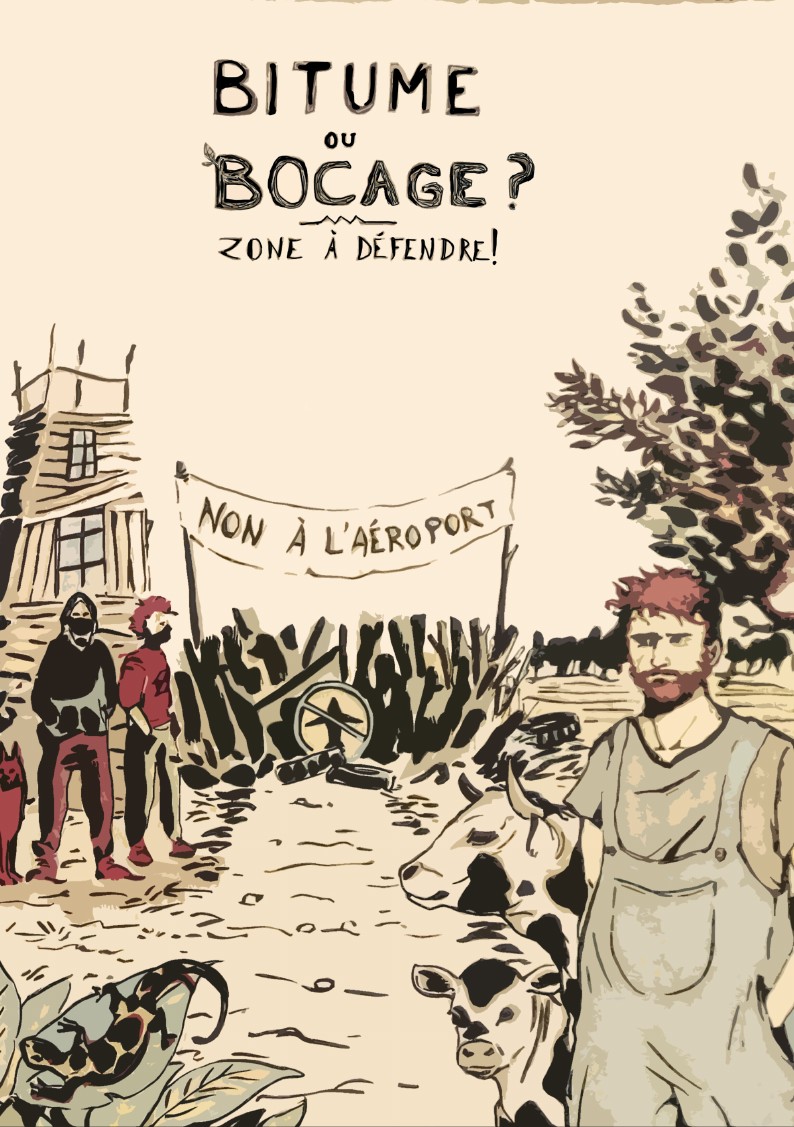
Ce livret retrace l'histoire de la lutte contre le projet de l'aéroport international du Grand Ouest, à Notre-Dame-Des-Landes à une vingtaine de kilomètres au nord de Nantes, en apportant des arguments pour expliquer les raisons d'être et les motivations du mouvement de la résistance. Il est rédigé à l'origine pour accompagner le jeu de plateau coopératif "Zone à Défendre" .
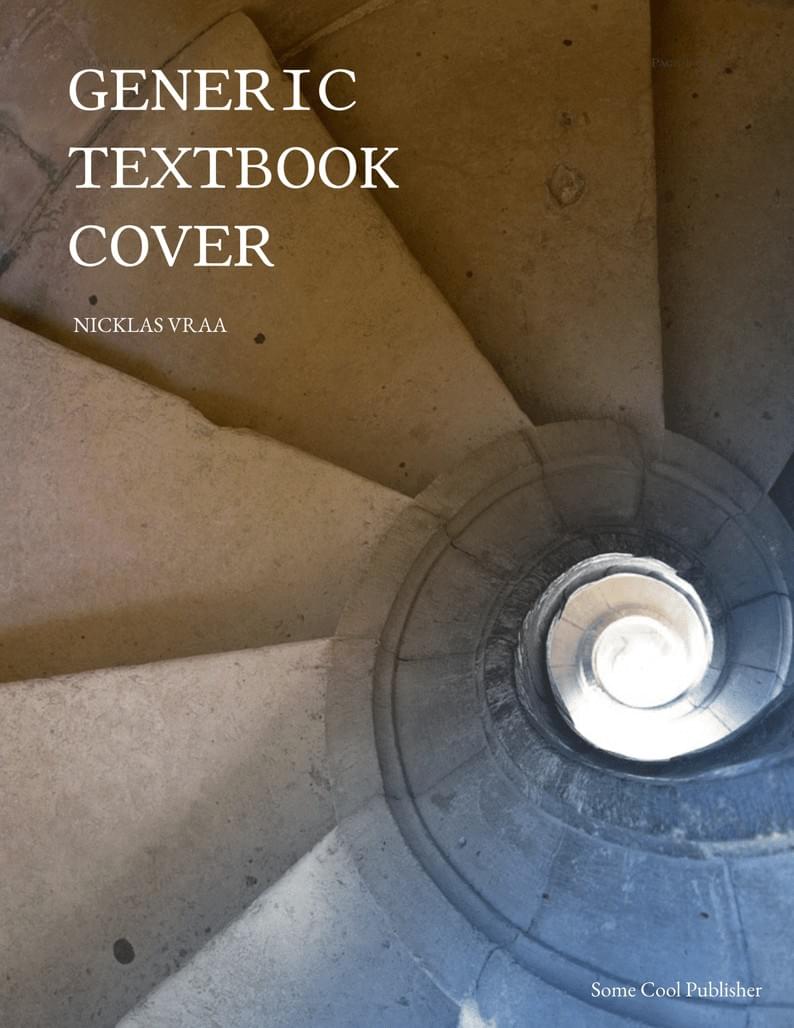
A textbook template built with the LiX meta-package. Check out the repository for guides and more templates: https://github.com/NicklasVraa/LiX. Stars are appreciated.
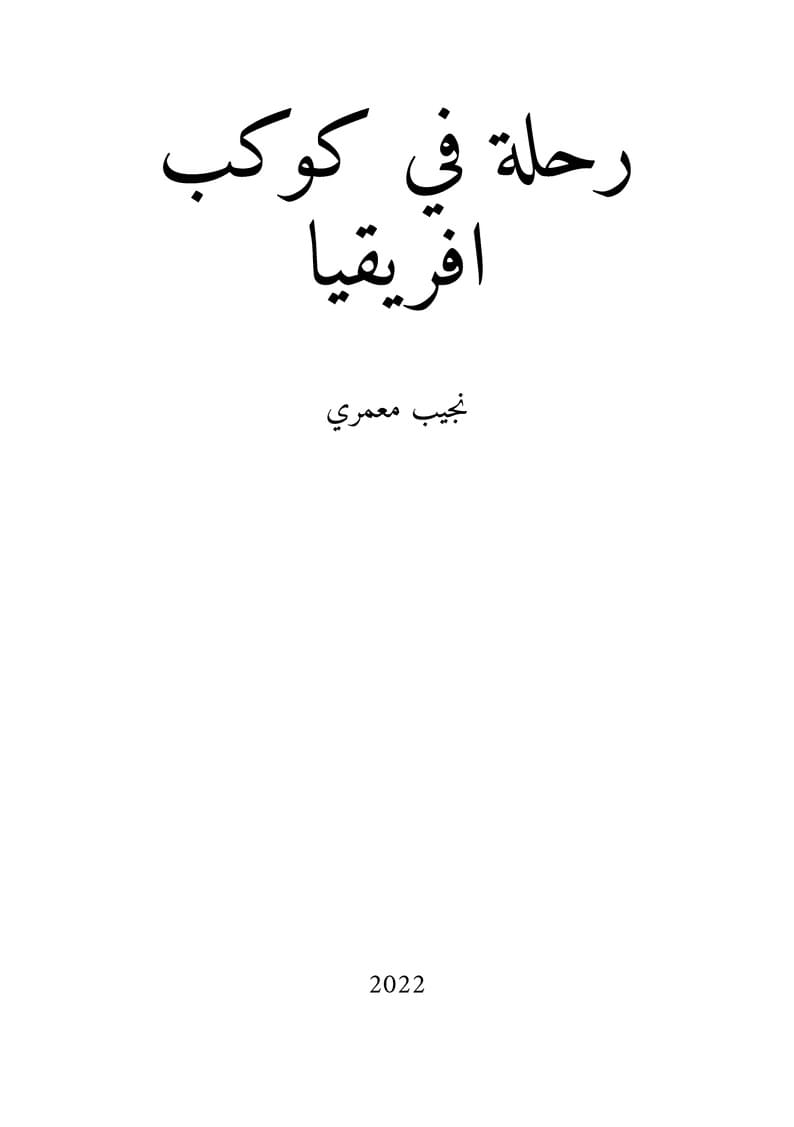
Template for an arabic book that supporting RTL and multi languages.
\begin
Discover why over 25 million people worldwide trust Overleaf with their work.